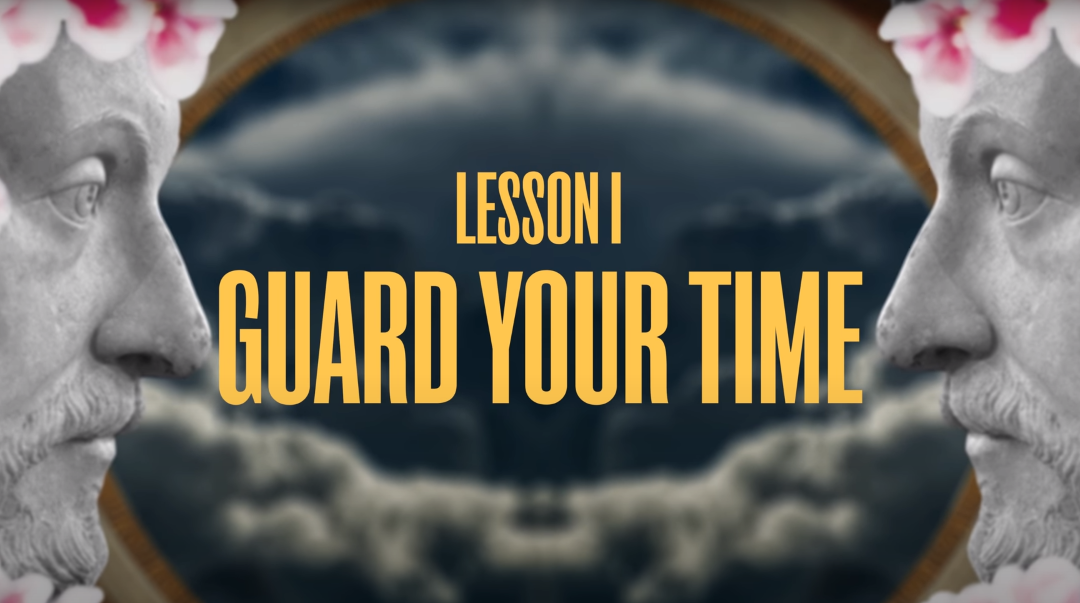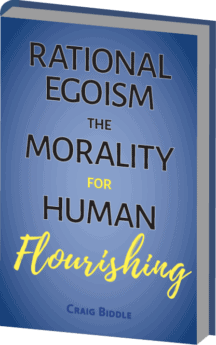Why do some people excel in life while others stagnate? Many factors are at play, but none is more powerful than free will.
We can choose to think or not to think, to exert mental effort or not to do so. That’s our fundamental choice. And choosing to think—along with choosing to act in accordance with our best judgment—are the fundamental ingredients in a successful, happy life.
Consider how this fundamental choice applies to work and the difference it makes. This allegory, told by Benjamin Hardy, illustrates the point beautifully:
A certain farmer had become old and ready to pass his farm down to one of his two sons. When he brought his sons together to speak about it, he told them: The farm will go to the younger son.
The older son was furious! “What are you talking about?!” he fumed.
The father sat patiently, thinking.
“Okay,” the father said:
“I need you to do something for me. We need more stocks. Will you go to Cibi’s farm and see if he has any cows for sale?”
The older son shortly returned and reported, “Father, Cibi has 6 cows for sale.”
The father graciously thanked the older son for his work. He then turned to the younger son and said:
“I need you to do something for me. We need more stocks. Will you go to Cibi’s farm and see if he has any cows for sale?”
The younger son did as he was asked. A short while later, he returned and reported:
“Father, Cibi has 6 cows for sale. Each cow will cost 2,000 rupees. If we are thinking about buying more than 6 cows, Cibi said he would be willing to reduce the price 100 rupees. Cibi also said they are getting special jersey cows next week if we aren’t in a hurry, it may be good to wait. However, if we need the cows urgently, Cibi said he could deliver the cows tomorrow.”
The father graciously thanked the younger son for his work. He then turned to the older son and said, “That’s why your younger brother is getting the farm.”
(Read Hardy’s full article here.)
I love this allegory. And I’ve shared it with my colleagues at OSI (and TOS), all of whom are “younger sons.” They don’t just do what they’re asked. They think, question, initiate, innovate. They make good things happen and get good things done. That’s why they work here. It’s why they love working here. It’s why they love working together. And it’s why, whenever we are hiring (which is always), we look for other “younger sons” to join our team.
If you want to be fully alive and fully engaged in living a beautiful life, bear in mind the difference between the older and younger son, and choose to be the latter.
James Clear recently made a similar distinction that I find helpful as well. There are “3 Levels of Employees,” he observed:
Level 1 — You do what you are asked to do.
Level 2 — Level 1 + You think ahead and solve problems before they happen.
Level 3 — Level 2 + You proactively look for areas of opportunity and growth in the business, and figure out how to tap into them.
Countless people fall into the first category. They operate, in effect, as robots who do what they’ve been programmed to do.
Many people fall into the second category, which, granted, is way better than the first. They do some thinking, and it makes a difference.
But why not choose to be in the third category? Why not “proactively look for areas of opportunity and growth in the business, and figure out how to tap into them”? Why not make your work-life interesting, challenging, rewarding?
Why not be a younger son?
There is much more to being a younger son than making a single choice to adopt a proactive approach to work. In order to successfully implement that choice you must create systems, environments, and habits that will enable you to follow through on that choice and to correct course as necessary along the way. But these too boil down to choices—choices to exert mental effort: You can choose to look for systems that work, and you can choose to implement them. You can choose to arrange your physical and social environments so that they are conducive to your success. You can choose to read books, listen to podcasts, and gather information about how to form and maintain good habits. And so on.
It all comes down to free will.
As Ayn Rand observed, free will “is your mind’s freedom to think or not, the only will you have, your only freedom, the choice that controls all the choices you make and determines your life and your character” (For the New Intellectual, 127).
The key to being a younger son, and to succeeding in life more broadly, is to recognize that you have free will and consistently choose self-interested actions.
I’ll write more in this space about free will and various ideas, systems, and tools for leveraging it. Jon Hersey and I will discuss related ideas on OSI’s podcast, Philosophy for Flourishing, which launches June 3. And we’ll do powerfully life-enhancing deep dives on all of this and more in OSI’s courses.
I hope you’ll (choose to) join us in this journey. It’ll be a blast!





Comment Policy
Comments submitted to Level Up are checked daily and moderated for alignment with the purpose of the blog, which is to share life-serving values with life-loving people. Comments may be complimentary or critical but must be on-topic and civil. Posters must use their real names (first and last). If your username is not your real name, simply include your full name at the end of your post. Comments are limited to 300 words, but we invite you to submit longer posts for publication on Level Up.